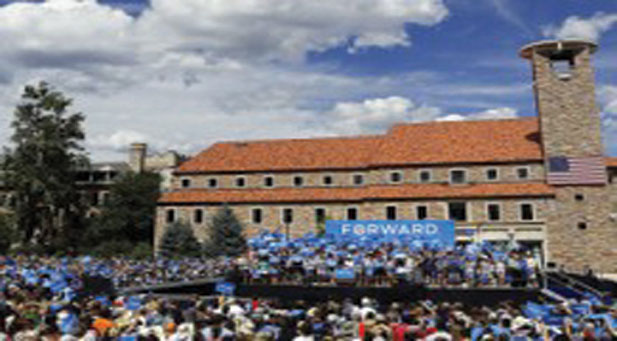 Maryland in violation of HBCU students’ Constitutional Rights
Maryland in violation of HBCU students’ Constitutional Rights
By Zenitha Prince From The AFRO
BALTIMORE – In a historic, 60-page decision, a federal court judge ruled that Maryland violated its constitutional commitment to dissolving vestiges of segregation in higher education by allowing traditionally white institutions to duplicate programs already offered by historically Black colleges and universities.
In the suit, filed in 2006 and argued in 2012, current and former students of Maryland’s public HBCUs—Bowie State University, Coppin State University, Morgan State University, and the University of Maryland Eastern Shore—argued they were subjected to on-going segregative policies trace-able to the de jure or legal era of segregation.
Federal District Judge Catherine Blake ruled partly in their favor, agreeing that Maryland had undermined HBCUs through unnecessary program duplication, such as the replication of Morgan State’s MBA program by Towson State and University of Baltimore, jointly. The resulting lack of unique programs at the state’s HBCUs, she wrote, had a segregative effect, by making those schools less attractive to students of all races.
For example, according to the ruling, in 1976, HBCUs re-ported 18.2 percent white undergraduate and graduate enrollment. But, by 2008—see-minly as a result of the in-crease in duplicative programs at proximate traditionally white institutions (TWIs) – the enrollment of white undergraduates at HBIs was 3.35 percent.
Judge Blake found that Maryland’s penchant for harmful program duplication was “comparable to, and in some cases more pronounced than, the duplication found in Mississippi” in the Supreme Court case from two decades ago that sought to mitigate the vestiges of segregation in that state’s education system.
The court found that while the state’s TWIs have 296 unique noncore programs, its HBCUs have only 44. More significantly, among the high-demand programs, Maryland’s HBCUs offer only 11 non-duplicated programs, compared with 122 such programs at TWIs.
The court further concluded that Maryland “offered no evidence that it has made any serious effort to address continuing historic duplication. Second, and even more troubling, the State has failed to prevent additional duplication, to the detriment of the HBIs.”
David Burton, president of the lead plaintiff, the Coalition for Excellence and Equity in Higher Education, said they were “elated” by the ruling.
“The very reason the Coalition was created was after the state undermined and duplicated Morgan’s MBA program. We sought to prevent the marginalization of the HBIs [historically Black institutions] and wanted them to have academic programs that are attractive to students and properly sup-ported by faculty, facilities and other resources,” he said in a statement.
Judge Blake did not order a specific remedy but provided guidelines for consideration, including “expansion of mission and program uniqueness and institutional identity at the HBIs.” She also suggested that “the transfer or merger of select high demand programs from TWIs to HBIs will be necessary.”
Michael D. Jones, lead counsel for the plaintiffs and a partner at Kirkland & Ellis LLP in Washington, D.C., said that those suggested solutions would require an infusion of re-sources—to train faculty and possibly enhance facilities—to ensure success.
“We look forward to the remedies phase of the trial,” he said. “We will present evidence of the costs of developing programs and identifying those programs at the traditionally white institutions that need to be transferred to the Historically Black Institutions.
We will also outline the additional resources that are necessary for those programs to be successful. We expect that at the end of the process Maryland’s HBIs will be shining examples of the possibilities at HBIs.”
Though Judge Blake’s provided some vindication to the plaintiffs, it was only a partial victory. The court did not agree with the Coalition’s assertion that the state’s funding formula was unconstitutional, although it did recognize “an abundance of evidence demonstrating that Maryland’s HBIs face challenges that stem from direct and indirect discrimination, economic stratification and pre-K-12th grade educational in-equity.”
HBCU supporters say they hope that the outcome of this case will prompt the state to do right by its traditionally Black institutions.
Jon Greenbaum, co-lead counsel for the plaintiffs and chief counsel of the Lawyers’ Committee for Civil Rights Under Law, said: “Now that the Court has found Maryland in violation of the constitution, we hope that Maryland will finally do the right thing and get serious about providing an adequate remedy that will enable HBIs to prosper.”
